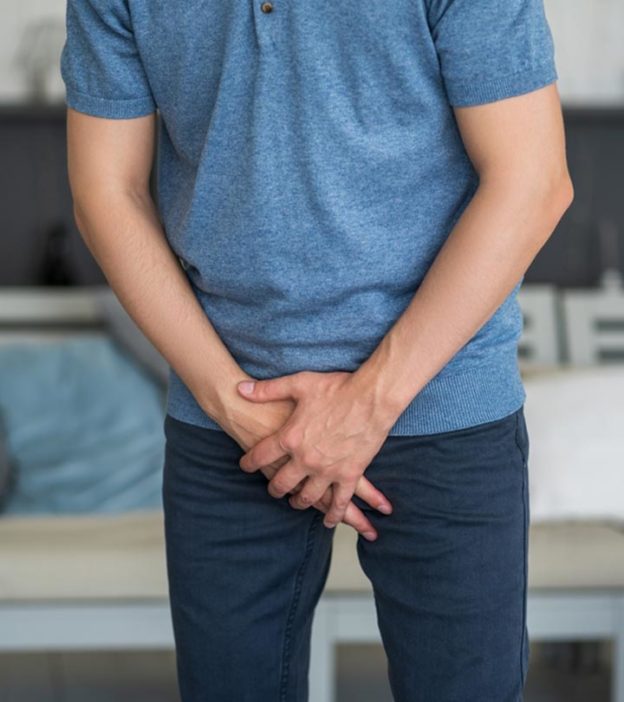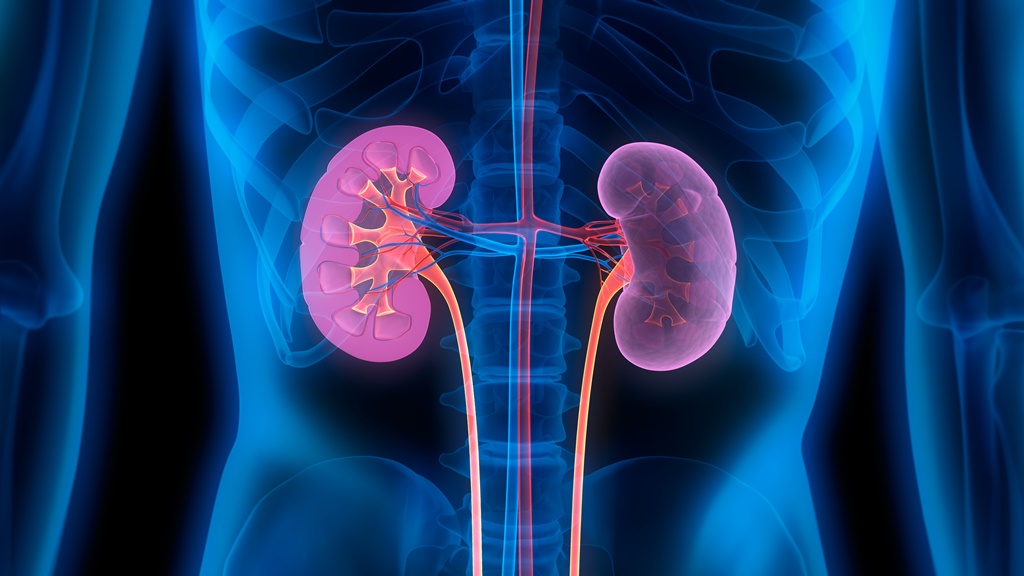State-of-the-Art Treatment Options for Kidney Stone
Kidney stones are painful crystalline formations in the urinary tract, a health issue faced by many, particularly men. In fact, studies indicate that there’s a 5-10% chance of developing kidney stones at some point during one’s lifetime. Predominantly seen in individuals aged 30 to 50, these stones are not just a source of discomfort but also a cause for concern.
Dr. Mahesh, a leading expert in urology, offers a comprehensive approach to managing and treating this painful condition. His expertise extends to the latest advancements in medical technology, including the cost-effective and minimally invasive laser removal of kidney stones. This state-of-the-art procedure ensures a quicker recovery and less discomfort compared to traditional methods.
Understanding the diverse needs of his patients in the UAE, Dr. Mahesh also incorporates effective kidney stone medicines tailored to individual requirements. These treatments are designed to dissolve stones and prevent future formation, providing relief and long-term health benefits.
Through Dr. Mahesh’s comprehensive care, patients not only receive immediate relief but also gain valuable knowledge and practices to prevent future occurrences of kidney stones. His blend of modern medicine, natural remedies, and lifestyle modifications offers a well-rounded and effective approach to tackling this common yet challenging condition.
Kidney stones are painful crystalline formations in the urinary tract, a health issue faced by many, particularly men. In fact, studies indicate that there’s a 5-10% chance of developing kidney stones at some point during one’s lifetime. Predominantly seen in individuals aged 30 to 50, these stones are not just a source of discomfort but also a cause for concern.
Dr. Mahesh, a leading expert in urology, offers a comprehensive approach to managing and treating this painful condition. His expertise extends to the latest advancements in medical technology, including the cost-effective and minimally invasive laser removal of kidney stones. This state-of-the-art procedure ensures a quicker recovery and less discomfort compared to traditional methods.
Understanding the diverse needs of his patients in the UAE, Dr. Mahesh also incorporates effective kidney stone medicines tailored to individual requirements. These treatments are designed to dissolve stones and prevent future formation, providing relief and long-term health benefits.
Through Dr. Mahesh’s comprehensive care, patients not only receive immediate relief but also gain valuable knowledge and practices to prevent future occurrences of kidney stones. His blend of modern medicine, natural remedies, and lifestyle modifications offers a well-rounded and effective approach to tackling this common yet challenging condition.

Causes and Risk Factors
Kidney stones form when your urine contains more crystal-forming substances — such as calcium, oxalate, and uric acid — than the fluid in your urine can dilute. This imbalance is often the result of inadequate fluid intake. Dehydration is a key risk factor, particularly in hot climates or among those who do not consume sufficient fluids daily.
Dietary Influences: What You Eat Matters
Your diet plays a pivotal role in kidney stone formation. Certain foods can increase the likelihood of stone development. For instance, while the consumption of methi (fenugreek) and aloe vera has been touted for its potential benefits in preventing kidney stones, these should not be considered standalone remedies. On the other hand, foods like hummus, which are high in oxalates, may contribute to the risk if consumed in large quantities, especially in individuals predisposed to stone formation.
Differentiating Stones: Kidney vs. Gallstones
It’s also important to differentiate kidney stones from gallstones. While both can cause significant discomfort, they have different causes and symptoms. Understanding these differences is vital for accurate diagnosis and treatment.
Dr. Mahesh’s comprehensive approach to understanding and managing male kidney stones integrates advanced medical treatments with practical lifestyle and dietary changes. His commitment to patient education and holistic care ensures that his patients are well-informed and well-equipped to tackle this challenge.
Signs and Symptoms
When it comes to identifying and understanding the symptoms of male kidney stones, Dr. Mahesh provides an expert and compassionate perspective, recognizing that each patient’s experience can vastly differ. The symptoms of kidney stones in males range from being completely pain-free to enduring excruciating pain, contingent upon several factors including the size of the stone, its location, and whether it is causing an obstruction in the urinary tract.
A tell-tale sign of kidney stones is the sudden onset of sharp pain, typically in the loin region, which can radiate towards the groin. This specific type of pain, known as renal colic, is relentless and uniquely distressing, as it does not subside regardless of changes in body position. Dr. Mahesh emphasises that this pain is often a crucial indicator of a stone being lodged in the ureter, the duct through which urine passes from the kidney to the bladder.
In addition to this acute pain, patients may experience a range of associated symptoms. Nausea and vomiting are common, as is the presence of blood in the urine, medically termed as haematuria. Painful urination and fever are also symptoms that might accompany kidney stones, signalling a need for immediate medical attention.


Diagnosis and Approach
Dr. Mahesh’s approach to diagnosing male kidney stones involves a thorough evaluation, beginning with a detailed medical history and a physical examination to identify any signs indicative of kidney stones. He employs a compassionate and professional approach, understanding the patient’s discomfort and anxiety. Urine and blood tests follow, crucial for detecting substances that may contribute to stone formation and assessing overall kidney health.
The diagnostic process culminates with a CT scan, offering a clear view of the urinary tract to pinpoint the stone’s size, shape, and location. Dr. Mahesh then meticulously analyses the combined results from the examination, tests, and CT scan to decide the best treatment strategy. This might include monitoring for spontaneous stone passage in cases of small, non-obstructive stones or considering active treatment options for larger, symptomatic stones.
Care and Treatment Approaches
Dr. Mahesh provides a range of advanced and effective options for the treatment of male kidney stones, each tailored to meet the specific needs of his patients. The most common methods for stone removal include shock-wave lithotripsy (SWL), ureteroscopy (URS), and percutaneous nephrolithotomy (PCNL), each with its own advantages and applications, ensuring that every patient receives the most suitable treatment.
Shock-wave lithotripsy (SWL) is a non-invasive procedure where sound waves are used to break kidney stones into smaller pieces that can be passed naturally through the urinary tract. This method is particularly beneficial for smaller stones and is favored for its minimal recovery time and discomfort. Ureteroscopy (URS), on the other hand, involves the use of a thin scope inserted through the urinary tract to locate and remove the stones directly or to break them into passable fragments. This procedure is often chosen for stones that are not suitable for SWL.
For larger or more complex stones, percutaneous nephrolithotomy (PCNL) is the preferred method. This involves making a small incision in the back to directly access the kidney, offering a more direct and effective way to remove large stones. Dr. Mahesh is skilled in determining which method is best suited to each patient’s condition, considering factors like stone size, location, and composition.
In the realm of active treatment, a critical component is the use of a J-J stent, a drainage tube inserted to ensure proper urine flow from the kidney to the bladder after the procedure. This tube, invisible to the naked eye, plays a vital role in aiding recovery and is typically removed 7 – 10 days post-surgery under Dr. Mahesh’s careful supervision.

Frequently Asked Questions
Is laser surgery good for kidney stones?
Yes, laser surgery is an effective treatment for kidney stones, especially for stones that are too large to pass naturally.
What is the success rate of laser kidney stone removal?
The success rate of laser kidney stone removal is generally high, often above 90%, depending on the size and location of the stone.
What is the main cause of kidney stones?
Kidney stones are primarily caused by a combination of genetic factors, dietary habits, and inadequate fluid intake leading to concentrated urine.
What is the fastest way to dissolve a kidney stone?
The fastest way to dissolve a kidney stone typically involves medical intervention like medication or surgical procedures, depending on the stone’s type and size.
What are the 10 foods that cause kidney stones?
Foods that may contribute to kidney stones include high-oxalate foods like Spinach, Nuts, Chocolate, Tea, Beets, Rhubarb, Animal Protein, Salty Foods, Cola/Soda, and Processed Foods, along with high-sodium and high-protein foods.
What is kidney stone pain like?
Kidney stone pain is often described as a sharp, cramping pain in the back and side, often radiating to the lower abdomen and groin.
What are kidney stones and how are they treated?
Kidney stones are hard deposits of minerals and salts that form in the kidneys. Treatments include hydration, pain relief, medical therapy, or surgical procedures.
What causes kidney stones?
Causes of kidney stones include dehydration, certain dietary factors, medical conditions, and genetic predisposition.
How to dissolve kidney stones?
Dissolving kidney stones often involves increased fluid intake, dietary changes, and sometimes medication, depending on the stone’s composition.
Can kidney stones cause cystitis?
While kidney stones themselves don’t cause cystitis, they can lead to urinary tract infections, which may result in cystitis.
Does potassium cause kidney stones?
Potassium is not typically a direct cause of kidney stones; in fact, potassium citrate is often used to prevent certain types of stones.
Can children get kidney stones?
Yes, children can get kidney stones, though it’s less common than in adults.
How long can it take to pass a kidney stone?
Passing a kidney stone can take a few days to a few weeks, depending on the stone’s size and location.
How many days to pass a kidney stone?
It can take several days to a few weeks for a kidney stone to pass, depending on various factors.
How much water to drink for kidney stones?
For kidney stones, it’s recommended to drink about 2.5 to 3 litres of water per day, unless otherwise advised by a healthcare provider.
Can lemon juice prevent kidney stones?
Lemon juice, high in citrate, can help prevent certain types of kidney stones by reducing stone formation.
Does Coke cause kidney stones?
Cola beverages, due to their high fructose and phosphoric acid content, may increase the risk of developing kidney stones in some people.
Is apple juice good for kidney stones?
Apple juice is not particularly beneficial for preventing kidney stones and may increase the risk due to its fructose content.
Is hummus good for kidney stones?
Hummus can be part of a kidney stone prevention diet, but moderation is key due to its calcium and oxalate content.

